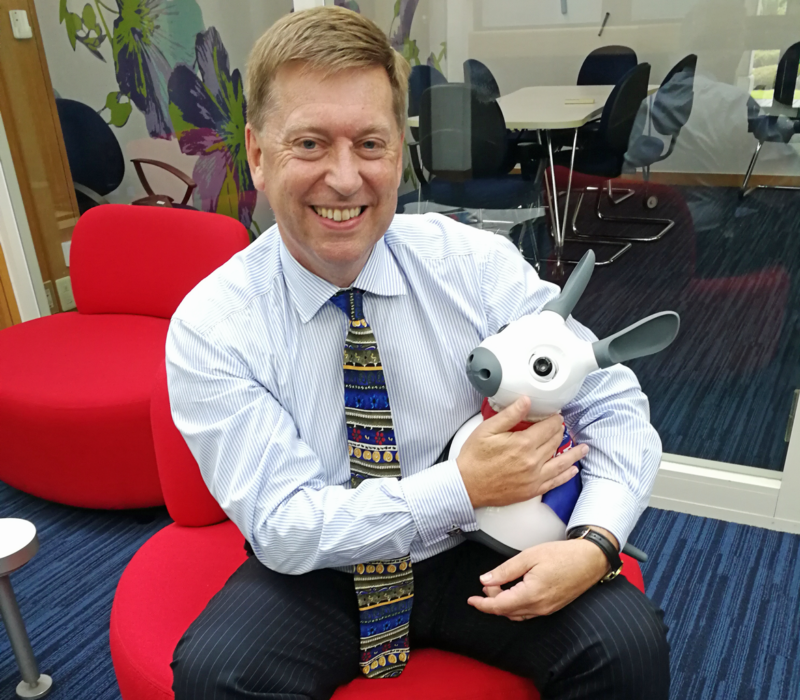Your speech at the Queen’s Birthday Party is one of the big events of the year for most Ambassadors, in front of hundreds of VIPs and important embassy contacts. So, I suppose it was a bit brave to give up part of mine to a synthesised version of my voice, speaking random sentences written by party guests. All in the interests of promoting our Innovation is GREAT AI campaign.
The technology, developed jointly by Japanese tech firm Toshiba and Cambridge University, is pretty impressive. I had to record 100 sentences in Japanese, from which the programme could then synthesise a very realistic version of my voice, saying any Japanese text typed into it. Bizarrely, if you typed in English text, it made me speak English in my natural voice, but with a heavy Japanese accent. It’s a fascinating insight into how foreign speakers’ pronunciation of a language is influenced by the stresses and cadences of their own language. You could even adjust the emotional tone to warm, angry or sad. Naturally I went for warm.
Fortunately, the party guests were kind and the sentences spoken by my voice were fully appropriate – apart from a rogue one by my team promising all embassy staff a 100% pay rise. Nice try. Our Guest of Honour, Internal Affairs and Communications Minister Seiko Noda, Japan’s most senior female minister, was most impressed.
Guests also enjoyed playing with the winsome robot dog MIRO, which its designer Sebastian Conran had told me about when he visited last year. Although, like robot pets, it responds to petting by nuzzling up to you and making cute sounds, it is in fact a research platform, used for investigating things like in-home support for the elderly.
50% of Europe’s AI companies are British. Although there are some strong collaborations in AI between Japanese and UK companies and academic researchers, there is less public awareness here of the UK’s strengths in this sector, which is already beginning to transform so many spheres of our lives. That’s why we are running the campaign.
Of course, aside from the robots, the party featured some of the more traditional elements of a QBP, with bandsmen from the Royal Scottish Regiment, and a jazz band from the British School of Tokyo. There was sushi, and British staples like fish and chips and chicken tikka masala. And guests were particularly delighted to sample a lemon and elderflower cake, based on the one served at the recent Royal Wedding. Such was the fascination of the Japanese public with the wedding, that Sarah and I had appeared on an hour-long NHK TV programme, together with a former Buckingham Palace chef, to discuss wedding cakes and British desserts.
I’m looking forward to a future where I won’t have to do those late-night teleconferences with the FCO in London, but can just get someone to type in my synthesised voice, while I’m off having sushi.

